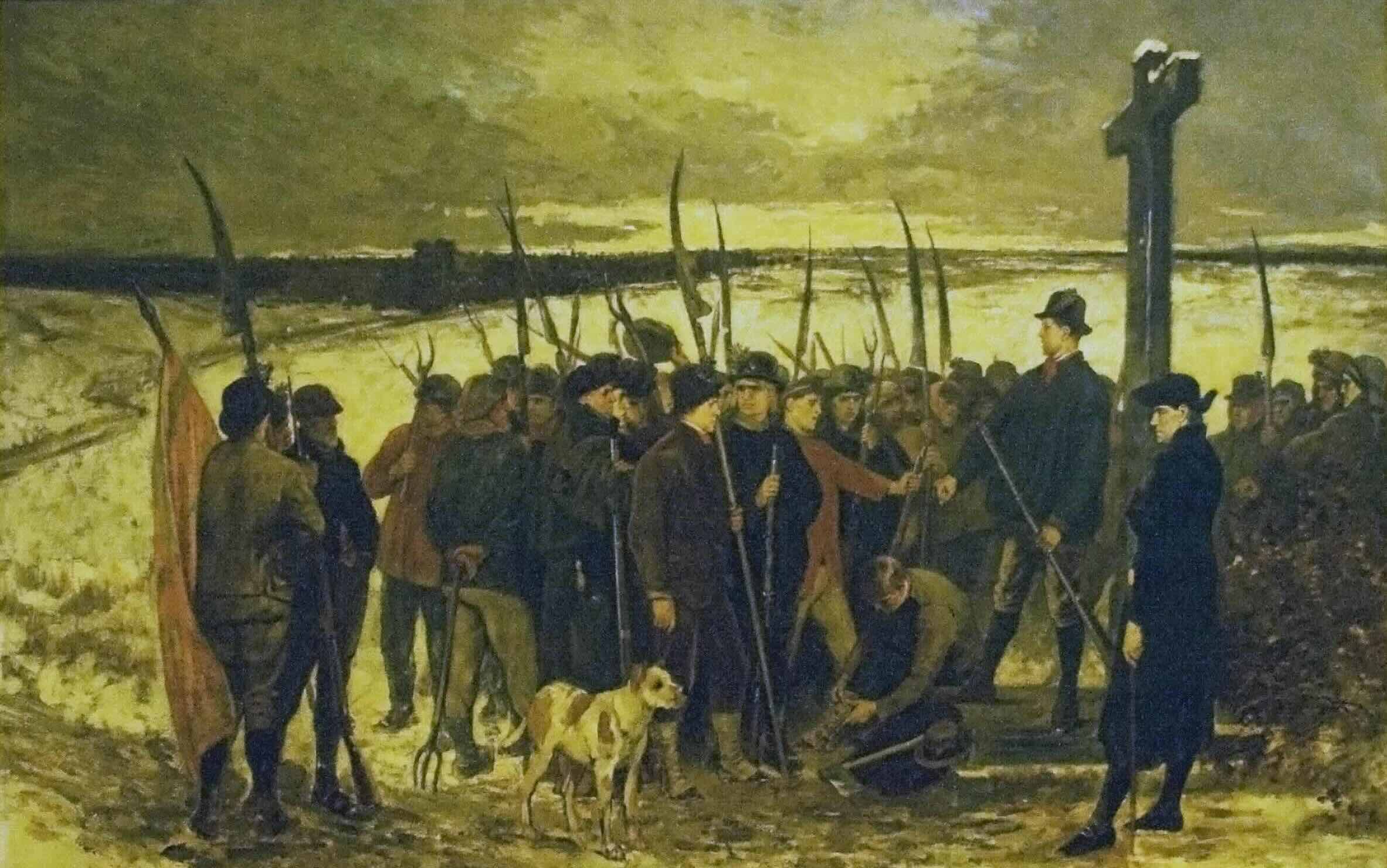
The Peasants' War was a significant uprising in 16th-century Germany that shook the foundations of society. Ever wondered what sparked such a massive revolt? Economic hardship, oppressive feudal practices, and religious tensions played pivotal roles. This conflict wasn't just about peasants wielding pitchforks; it involved complex alliances, brutal battles, and profound consequences. Did you know that over 300,000 peasants participated, making it one of the largest popular uprisings in European history? The war's impact rippled through the centuries, influencing future revolutions and social movements. Ready to dive into 30 intriguing facts about this monumental event? Let's uncover the layers of history behind the Peasants' War!
Key Takeaways:
- The Peasants' War was a major uprising by common people against the ruling class in 16th century Europe, driven by economic hardships, religious influences, and desire for freedom.
- Despite being crushed, the Peasants' War influenced future social movements and highlighted the tensions between different social classes, leaving a lasting impact on European history and culture.
The Peasants' War: A Glimpse into History
The Peasants' War was a significant event in European history. It was a time when common folk stood up against the ruling class. Here are some fascinating facts about this tumultuous period.
- The Peasants' War took place between 1524 and 1525 in the Holy Roman Empire.
- It was one of the largest and most widespread uprisings in European history.
- The war was primarily a response to economic hardships and social injustices faced by peasants.
- Martin Luther, the famous reformer, initially supported the peasants but later condemned their violent actions.
- The Twelve Articles, a document listing the peasants' demands, became one of the first declarations of human rights in Europe.
Causes and Triggers
Understanding the causes of the Peasants' War helps us grasp why it erupted so fiercely.
- High taxes and feudal dues burdened the peasants, leading to widespread discontent.
- The spread of Lutheran ideas encouraged peasants to question their social and economic conditions.
- Poor harvests and famine exacerbated the peasants' suffering, pushing them to revolt.
- The influence of radical preachers, who advocated for social equality, inspired many peasants to take up arms.
- The war was also fueled by the desire for religious freedom and the end of serfdom.
Key Figures and Leaders
Several notable figures played crucial roles in the Peasants' War, shaping its course and outcome.
- Thomas Müntzer, a radical preacher, became one of the most prominent leaders of the peasant forces.
- Florian Geyer, a knight who sympathized with the peasants, led the Black Company, a group of rebel fighters.
- The Swabian League, an alliance of princes and nobles, was instrumental in suppressing the revolt.
- Duke Ulrich of Württemberg initially supported the peasants but later switched sides to the nobility.
- Emperor Charles V, the ruler of the Holy Roman Empire, ultimately ordered the suppression of the rebellion.
Battles and Conflicts
The Peasants' War saw numerous battles and skirmishes, each contributing to the overall conflict.
- The Battle of Leipheim was one of the first major clashes, resulting in a decisive victory for the Swabian League.
- The Battle of Frankenhausen marked the end of the rebellion, with thousands of peasants killed or captured.
- The Siege of Weinsberg saw brutal violence, with peasants executing captured nobles.
- The Battle of Böblingen was another significant defeat for the peasant forces.
- Many smaller skirmishes and uprisings occurred throughout the Holy Roman Empire during the war.
Aftermath and Consequences
The Peasants' War had lasting effects on European society and politics.
- The rebellion was ultimately crushed, with tens of thousands of peasants killed.
- The war led to increased repression and stricter control over the peasantry by the nobility.
- Despite their defeat, the peasants' demands influenced future social and political movements.
- The war highlighted the growing tensions between different social classes in Europe.
- The Peasants' War is often seen as a precursor to later revolutionary movements, such as the French Revolution.
Cultural and Historical Impact
The Peasants' War left a lasting legacy in European culture and history.
- The war has been depicted in various works of art, literature, and music over the centuries.
- It inspired future generations to fight for social justice and equality.
- The Peasants' War is studied by historians as an example of early modern social and political unrest.
- The events of the war have been commemorated in museums and historical sites across Europe.
- The Peasants' War remains a powerful symbol of the struggle for freedom and human rights.
The Peasants' War Legacy
The Peasants' War left a lasting mark on history. This uprising wasn't just about rebellion; it highlighted the deep social and economic divides of the time. Peasants, tired of oppressive taxes and feudal duties, sought change. Though their efforts were brutally crushed, their fight sparked discussions on justice and equality.
The war also influenced future revolts and reforms. Leaders and thinkers began to question the status quo, leading to gradual shifts in power dynamics. The bravery of these peasants, despite their defeat, inspired others to challenge unjust systems.
Understanding the Peasants' War helps us appreciate the struggles of those who fought for a fairer society. Their legacy reminds us that even the most marginalized voices can drive significant change. History, after all, is shaped by those who dare to stand up for their rights.
Frequently Asked Questions
Was this page helpful?
Our commitment to delivering trustworthy and engaging content is at the heart of what we do. Each fact on our site is contributed by real users like you, bringing a wealth of diverse insights and information. To ensure the highest standards of accuracy and reliability, our dedicated editors meticulously review each submission. This process guarantees that the facts we share are not only fascinating but also credible. Trust in our commitment to quality and authenticity as you explore and learn with us.
